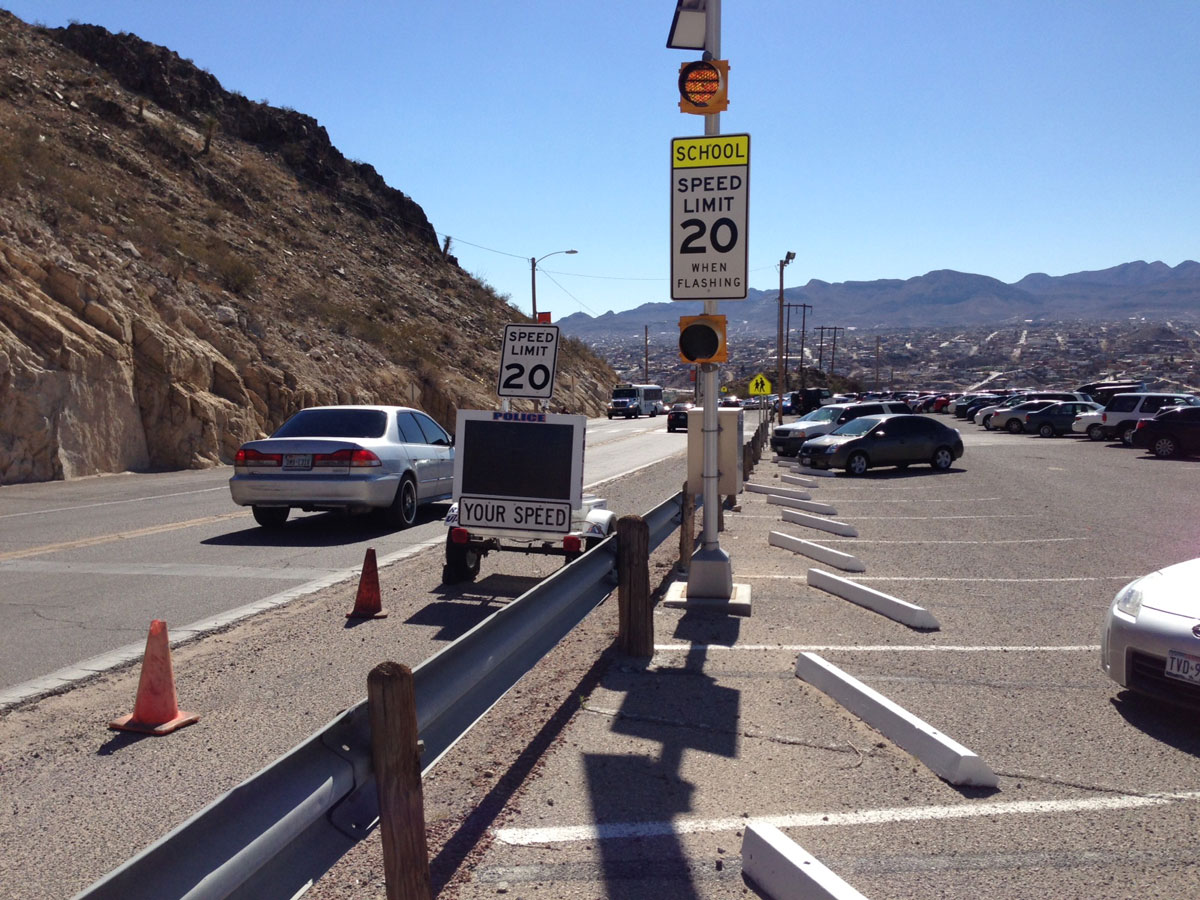Quote:
Originally Posted by the urban politician

^ I never mentioned red light cameras. I mentioned speed cameras. You know, the one that clocks you going 35 in a 25 mph zone and sends you a $100 ticket. Raise your hand if you've never 'speeded' before
|
My only concern is the school zone enforcement, because the speed limit changes depending on the time of day, and originally, the cameras were to be in effect until 8pm on weekdays, long beyond traditional school hours, with a 1/4 mile buffer zone (meaning, you may never even see the school).
In El Paso, TX; the school zones are very clearly marked and I noticed everyone obeys them. When the zoned speed limit is in effect, yellow lights flash and the limits of the speed zone are stripped across the street. You know what the speed is, where it begins and were it ends very clearly, and the speed reduction is graduated with whatever the base speed limit was on that street, i.e. a 45MPH zone only reduces to a 30MPH zone in school hours.
 Source
Source
I think this is a very fair way of implementing it, with giving drivers plenty of notice; really leaving them with no excuse to speed in those zones. The city should look at El Paso as an example/case study.
If signs are well marked, driving culture in the city will adapt without too much trouble and the net effect on businesses should be minimal.



